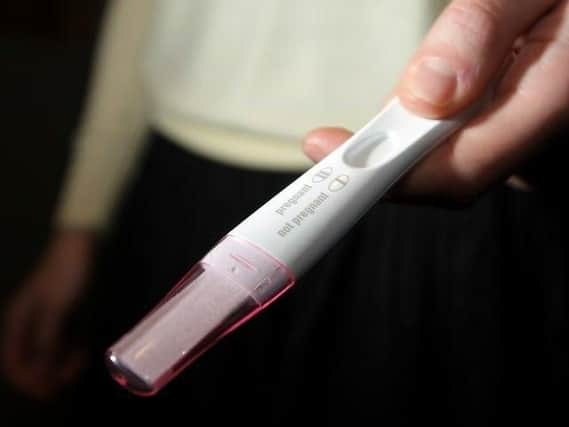The number of Wigan women undergoing abortions has risen


Health experts have warned that older women might find themselves excluded from schemes providing free contraception.
And they also say the two-child benefit cap has deterred many women from having a third, unplanned child.
Advertisement
Hide AdAdvertisement
Hide AdNew Department of Health and Social Care data shows that there were 1,109 terminations performed in Wigan in 2018: that is a whopping 20 per cent more than just five years earlier in 2013.
It also equates to a rate of 19 abortions per every 1,000 women aged 15 to 44, when the rate across England as a whole is 17.5 per 1,00.
Of those, 32 per cent of the operations were for women aged 30 or over: up from five years earlier when the proportion was 26 per cent.
Clare Murphy, director of external affairs at the British Pregnancy Advisory Service, said the reasons behind the rise are complex.
Advertisement
Hide AdAdvertisement
Hide AdShe said: “Accessible contraceptive services are often focused on the needs of younger women and women over the age of 25 can, in particular, find themselves excluded from schemes providing free pharmacy access to emergency contraception.
“As so many women in the UK rely on pills and condoms as their main methods of contraception, it is vital that there is swift access to emergency options when those methods fail or a pill is missed.”
Data shows that 99.8 per cent of abortions under 10 weeks in Wigan were funded by the NHS, a figure in line with the rate of five years earlier.
And more than nine out of 10 of the terminations were carried out under 13 weeks’ gestation, with 82 per cent of them taking place at under 10 weeks.
Advertisement
Hide AdAdvertisement
Hide AdAcross England and Wales, the number of women having an abortion has hit a record high.
There were more than 205,000 in 2018: 7.6 per cent higher than five years earlier.
Ms Murphy said greater access to services was also needed for women who are already mothers, and pointed out that unplanned pregnancy in the year after birth is not uncommon, particularly among women who are breastfeeding.
She added: “However, it is also possible that, over the longer-term, couples are making different decisions about family size and the number of children they can afford and feel able to properly care for.
Advertisement
Hide AdAdvertisement
Hide Ad“The two-child benefit cap was designed to influence reproductive decision-making and we are certainly aware of cases where that has been a factor in a woman’s decision to end a third, unplanned pregnancy.”
Clare McCarthy, spokeswoman for the Right to Life charity, said it was concerning that proposals to improve access to abortion could see the numbers rise.